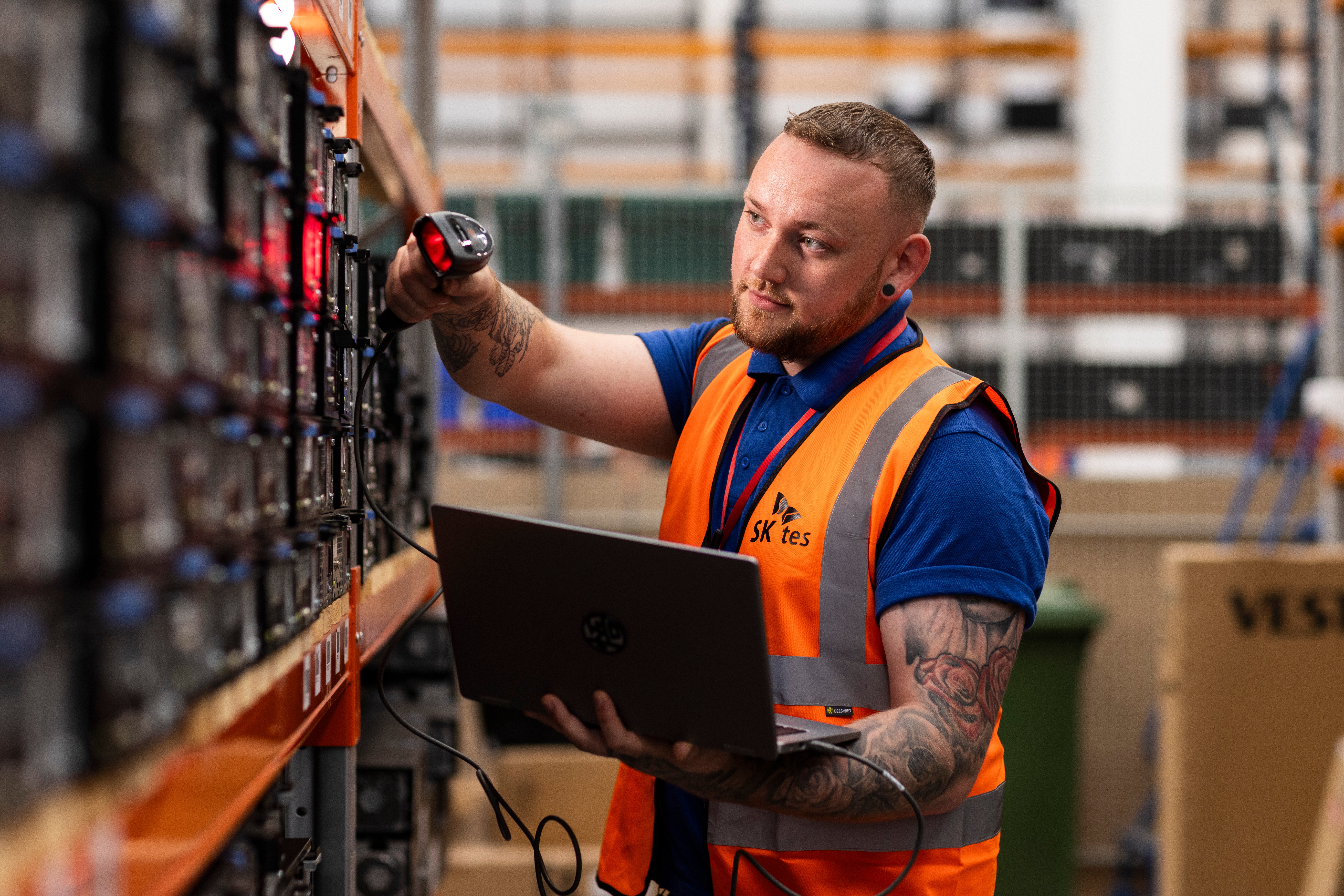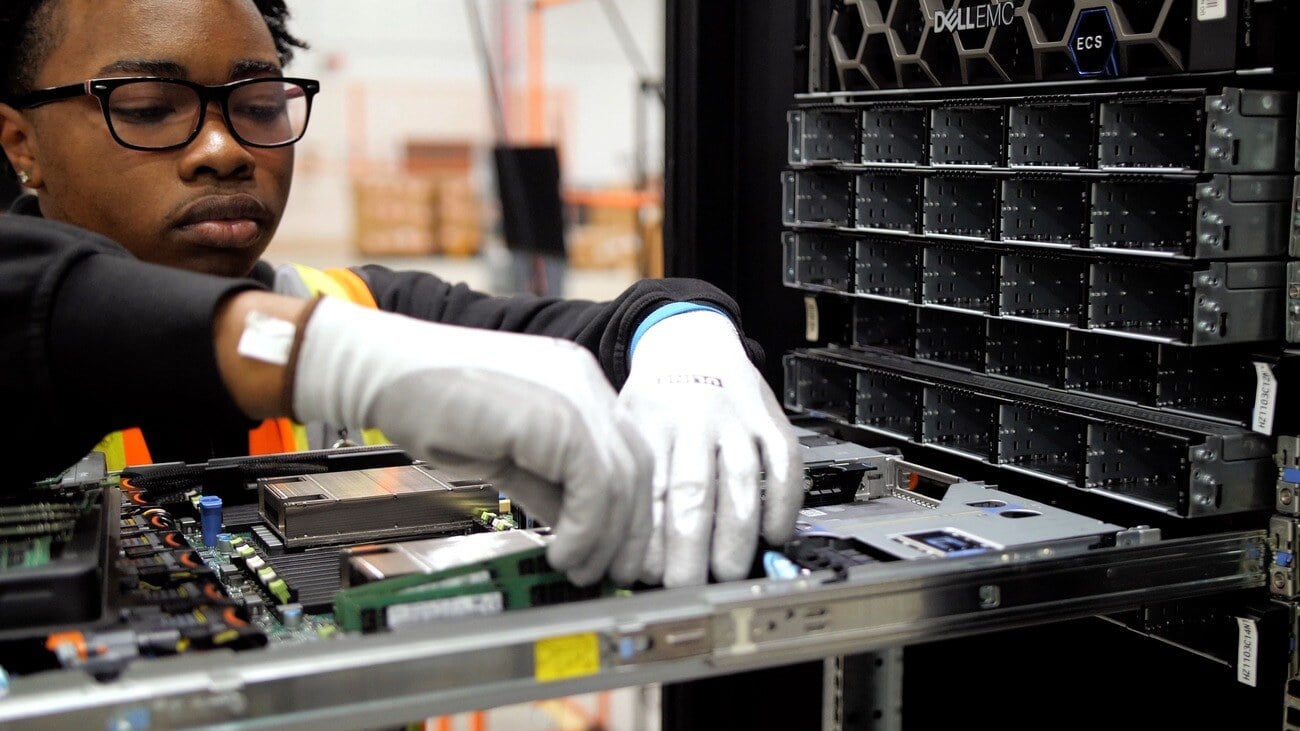The role of corporations in driving sustainable development has never been more critical. Human rights, economic challenges, and environmental stewardship need to be at the top of corporate agendas. Companies, not just governments need to step up to address societal dilemmas affecting our life on earth.
At SK tes, we're not just observing from the side lines; we're actively aligning our business operations and strategies with the United Nations' Sustainable Development Goals (SDGs). This commitment is evident in our innovative approaches to IT Asset Disposition (ITAD) and battery recycling, where we're developing sustainable practices that contribute to sustaining tomorrow.
Contents
1. What are the UN SDGs and how were they created?
2. The Imperative of Corporate Responsibility in Today's World
3. SK tes' Eight Strategic Ways to Sustainable Development
What are the UN SDGs and how were they created?
In a historic show of cooperation and partnership, the countries of the world signed up to 17 Goals for a better world by 2030, setting the blueprint for all actors in society to support joint action. Called the United Nations’ Sustainable Development Goals (SDGs), or Global Goals, they are a commitment by over 190 countries to advance the 5 P’s of people, planet, prosperity, peace and partnerships. Goals such as No poverty, Zero hunger, Quality education, Decent work and economic growth, Responsible consumption and production, and Climate action are further granularized into 169 targets and 132 indicators, highlighting the strong focus on implementation in terms of mobilization of financial resources, capacity building and technology, data and institutions.
The Imperative of Corporate Responsibility in Today's World
The SDGs specifically call for business-led solutions. In the research study Better Business, Better World by the Business & sustainable Development Commission in 2017, 35 CEOs and civil society representatives estimated that achieving the SDGs could open 60 sustainable and inclusive market hotspots, which could generate at least $12 trillion US dollars' worth of market opportunities by 2030. The Report also claims the economic value of implementing the SDGs could potentially be 2-3 times this amount and could create 380 million jobs by the turn of the decade.
It corresponds that unless market opportunities are seized, value will be lost. The private sector thus plays a critical role in solving the challenges, which in so doing will also generate new business opportunities and revenue streams. A key concern for organisations is whether any initiative or activity undertaken would have any meaningful impact on progressing the SDGs. Many businesses struggle to make the connection or have the right appreciation or understanding of the purpose of the Goals. That starting point is the purpose that provides motivation to be involved in the global work of the SDGs.
At SK tes, we recognise the significance of these goals and are integrating them into our business strategy and core operations, ensuring that our efforts contribute positively to the broader sustainability agenda. Since 2018 we have been progressing efforts to best align with these goals through our Sustaining Tomorrow strategy to Protect, Preserve and Provide.
SK tes' Strategic Approach to Sustainable Development
At the heart of SK tes' mission is a profound dedication to sustainable development, guided by the UN's SDGs. We have identified key areas where our business operations can make the most impact, including quality education (SDG 4), gender equality (SDG 5), affordable and clean energy (SDG 7), decent work and economic growth (SDG 8), industry, innovation, and infrastructure (SDG 9), responsible consumption and production (SDG 12), climate action (SDG 13), and partnerships for the goals (SDG 17). Our strategies are carefully designed to address these goals, ensuring that our business not only thrives but also contributes positively to the world.
The SDGs offer a comprehensive framework for companies to step up and contribute to the greater good. Let's delve deeper into eight ways that SK tes is making strides towards sustainable development, particularly for identified goals 4, 5, 7, 8, 9, 12, 13, and 17.
1. Empowering Education Through Technology
SK tes is supporting quality education (SDG 4) through initiatives such as the Full Circle Programme. This program aims to bridge the digital divide by providing IT equipment to remote communities in Australia, enhancing access to education and learning opportunities, thereby supporting quality education (SDG 4).
2. Advancing Gender Equality With a Diverse Workforce
By fostering a diverse and inclusive workforce, SK tes is making significant strides toward gender equality (SDG 5). The company ensures that women are recognized and rewarded equally, promoting an environment where gender diversity is celebrated and integral to its success.
3. Driving the Transition to Affordable and Clean Energy
SK tes is leading the charge in the transition to affordable and clean energy (SDG 7) through strategic investments in battery lifecycle services. These efforts in e-waste recycling and energy storage not only support environmental sustainability but also help make clean energy accessible to all.
4. Ensuring Decent Work and Economic Growth
We believe that decent work conditions and economic innovation are fundamental to sustainable development. As a responsible business in the e-recycling industry, we adhere to the highest standards of human rights and labor practices (SDG 8).
5. Encouraging Industry, Innovation, and Infrastructure
Our commitment to resource efficiency and sustainable business models also contributes to economic innovation, ensuring that our growth does not come at the expense of the planet (SDG 9). ]
6. Advocating Responsible Consumption and Production
Under SDG 12, SK tes focuses on responsible consumption and production by managing natural resources sustainably, reducing waste through prevention and recycling, and promoting sustainable practices. The company also works to strengthen scientific and technological capacities for sustainable consumption. 6.
7. Committing to Climate Action
In alignment with SDG 13, SK tes is actively involved in climate action by collecting and monitoring greenhouse gas emissions data. The goal is to achieve net-zero emissions by 2050, in line with the Paris Agreement, by understanding and managing its GHG emissions inventory.
8. Building Partnerships for a Sustainable Future: A Call to Action
Achieving the SDGs requires collaboration and partnership (SDG 17). SK tes is actively involved in global and local initiatives, working alongside industry partners, regulatory bodies, and non-governmental organizations to drive progress toward these goals. Our participation in the Global Battery Alliance and various R&D consortiums exemplifies our commitment to partnerships that foster sustainable development.
SK tes's alignment with the UN's Sustainability Goals underscores our dedication to fostering a sustainable future. Through our innovative ITAD and battery recycling initiatives, we're not just transforming our business but also contributing to a world where sustainability is at the forefront of every decision.
Download our Sustainability Report to find out more about how SK tes is contributing to the UN Sustainable Development Goals.







